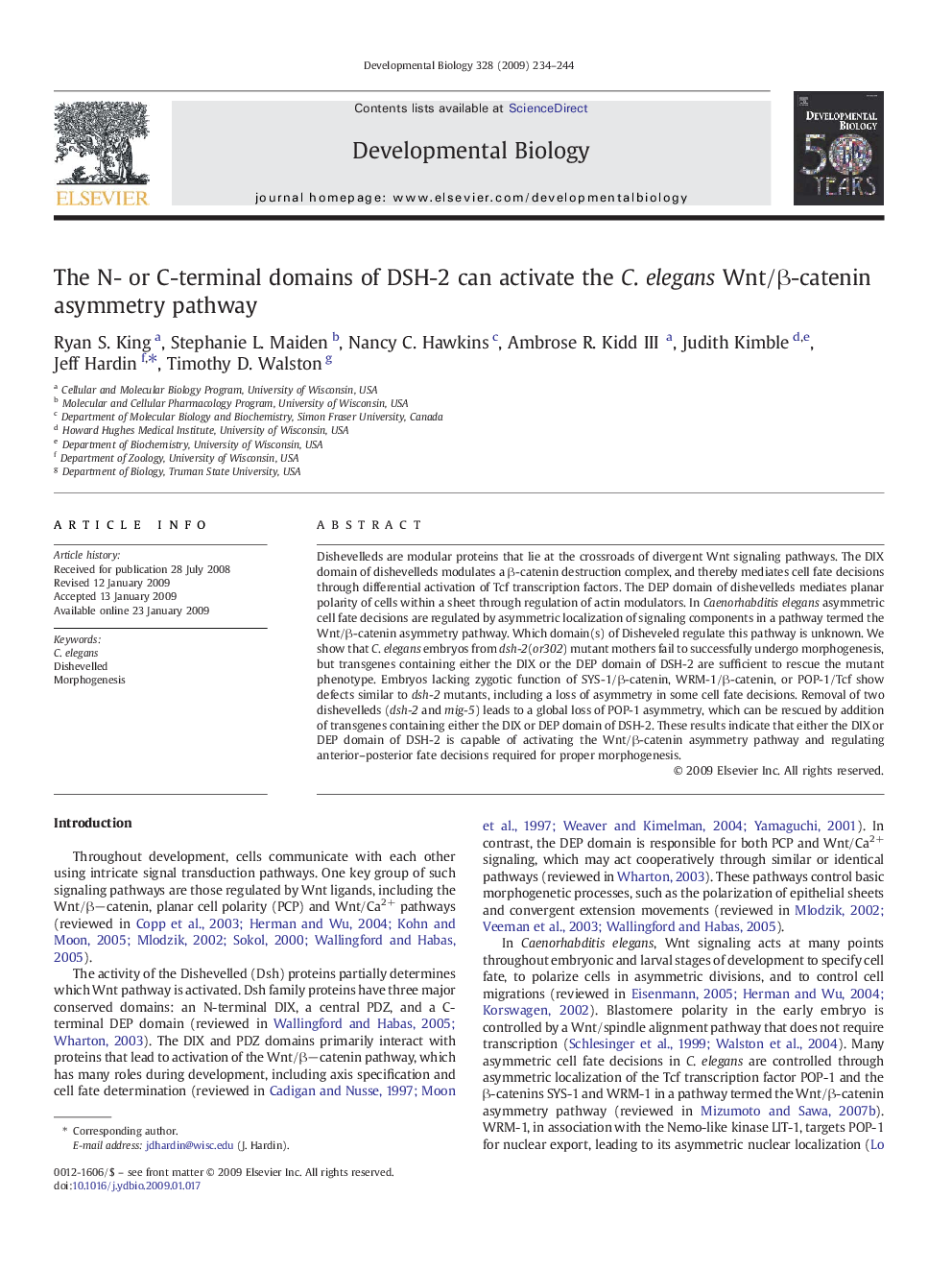| Article ID | Journal | Published Year | Pages | File Type |
|---|---|---|---|---|
| 10933326 | Developmental Biology | 2009 | 11 Pages |
Abstract
Dishevelleds are modular proteins that lie at the crossroads of divergent Wnt signaling pathways. The DIX domain of dishevelleds modulates a β-catenin destruction complex, and thereby mediates cell fate decisions through differential activation of Tcf transcription factors. The DEP domain of dishevelleds mediates planar polarity of cells within a sheet through regulation of actin modulators. In Caenorhabditis elegans asymmetric cell fate decisions are regulated by asymmetric localization of signaling components in a pathway termed the Wnt/β-catenin asymmetry pathway. Which domain(s) of Disheveled regulate this pathway is unknown. We show that C. elegans embryos from dsh-2(or302) mutant mothers fail to successfully undergo morphogenesis, but transgenes containing either the DIX or the DEP domain of DSH-2 are sufficient to rescue the mutant phenotype. Embryos lacking zygotic function of SYS-1/β-catenin, WRM-1/β-catenin, or POP-1/Tcf show defects similar to dsh-2 mutants, including a loss of asymmetry in some cell fate decisions. Removal of two dishevelleds (dsh-2 and mig-5) leads to a global loss of POP-1 asymmetry, which can be rescued by addition of transgenes containing either the DIX or DEP domain of DSH-2. These results indicate that either the DIX or DEP domain of DSH-2 is capable of activating the Wnt/β-catenin asymmetry pathway and regulating anterior-posterior fate decisions required for proper morphogenesis.
Keywords
Related Topics
Life Sciences
Biochemistry, Genetics and Molecular Biology
Cell Biology
Authors
Ryan S. King, Stephanie L. Maiden, Nancy C. Hawkins, Ambrose R. III, Judith Kimble, Jeff Hardin, Timothy D. Walston,
